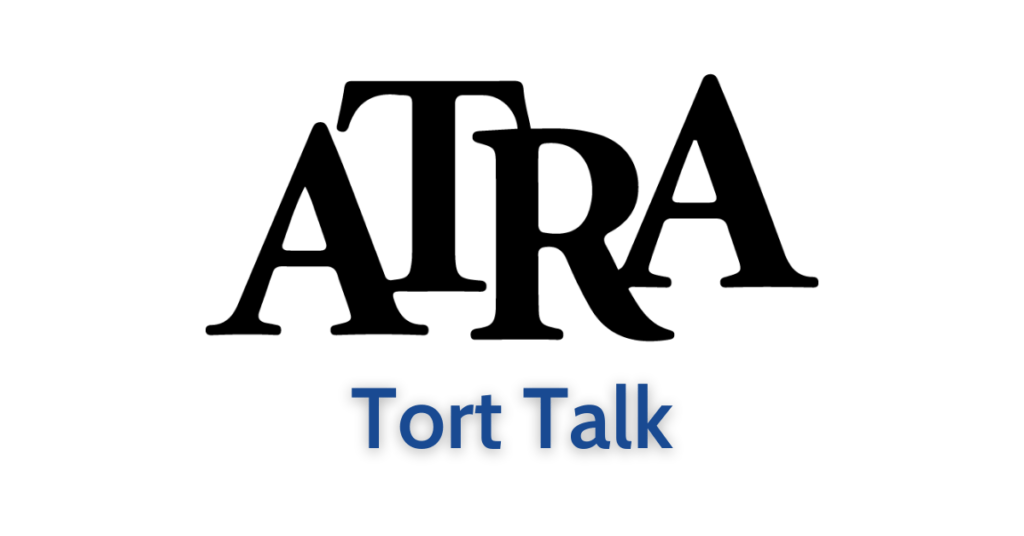
Hidden Influence: How Third-Party Litigation Financing Fuels Lawsuit Abuse
It’s time to pull back the curtain on third-party litigation financing and restore balance to our courts.
As we mark Lawsuit Abuse Awareness Week, it’s crucial to shine a light on one of the most significant yet opaque forces driving frivolous litigation today: third-party litigation financing (TPLF). This multibillion-dollar industry is reshaping our legal landscape, often at the expense of justice and fair outcomes. It’s become a key component of the “trial lawyer playbook,” providing plaintiffs’ attorneys with the resources to pursue large-scale litigation campaigns.
TPLF allows investors to buy a stake in lawsuit outcomes, fronting money to law firms in exchange for a cut of any settlement or judgment. While proponents argue it provides access to justice, the reality is far more concerning. Here’s why:
- Lack of Transparency: TPLF operates in the shadows. Without disclosure requirements, courts and opposing parties are often unaware of the financial interests influencing cases.
- Predatory Practices: Consumer lawsuit lending can be extremely predatory, with interest rates soaring as high as 124% in some cases. Vulnerable plaintiffs may end up owing far more than they borrowed.
- Fueling Frivolous Lawsuits: The influx of outside capital incentivizes the pursuit of questionable claims, clogging courts and driving up costs for everyone. In Judicial Hellholes® like New York City and Georgia, this practice has become particularly rampant.
- Complicating Settlements: TPLF makes reasonable case resolutions harder to achieve, as funders push for higher payouts to maximize their returns.
- Driving Nuclear Verdicts: The presence of litigation funding contributes to the rise of excessive jury awards, distorting the civil justice system.
Recent examples from Judicial Hellholes® illustrate the dangers:
- In Georgia, a 2018 state Supreme Court ruling allowed litigation funders to charge usurious rates without legal restrictions, contributing to the state’s reputation as the No. 1 Judicial Hellhole®.
- New York City has seen consumers taking small loans while their cases are pending, only to find themselves obligated to repay up to 10 times the borrowed amount. The lack of mandated disclosure of litigation funding agreements further contributes to this environment of secrecy and exploitation.
- In Louisiana, a surge in hurricane-related insurance claims has been linked to a scheme involving litigation funders and a law firm, raising serious concerns about fraud and the integrity of the legal process.
The consequences of unchecked TPLF are severe. It drives up the cost of the civil justice system, diverts resources from product innovation, and ultimately harms consumers through higher prices and fewer choices. In Judicial Hellholes®, these effects are magnified, creating a toxic environment for both plaintiffs and defendants.
This summer, Congressman Darrell Issa, Chair of the House Subcommittee on Courts, Intellectual Property, and the Internet, introduced the Litigation Transparency Act of 2024, a draft discussion bill to address oversight and transparency in these third-party funding arrangements.
As we observe Lawsuit Abuse Awareness Week, it’s clear that addressing third-party litigation financing must be a priority. Lawmakers need to implement strict disclosure requirements and regulate this industry to ensure our legal system remains fair and just for all.
Without action, we risk a future where deep-pocketed investors, not the merits of a case, determine legal outcomes. It’s time to pull back the curtain on TPLF and restore balance to our courts.
Curious about the potential impact of lawsuit abuse on your business operations? Contact us to explore how joining ATRA can play a pivotal role in rebalancing our legal system to ensure fairness and equity for all.
Stay informed, stay engaged, and let’s chart a course through the ever-evolving legal terrain together.
Join ATRA
Latest News
View all news
Groups Urge Congressional Scrutiny of D.C. Attorney General’s Use of Private Attorneys
Concerns Mount Over Outside Counsel Contracts and Litigation Agendas
America’s $367 Billion Lawsuit Epidemic
The Hidden Tax Crushing Families and Businesses
$745 Million Verdict in Coastal Litigation Exemplifies Louisiana’s ‘Judicial Hellhole®’ Status
Excessive Litigation Costs Residents $1,011 Annually and Jeopardizes 40,000 Jobs Each Year
Alarming Expansion in Public Nuisance Litigation Revealed by ATRA Report
From Social Media to Car Thefts, New Litigation Trends Threaten Entire Industries
Georgia Legislature Passes Landmark Tort Reform Bill
ATRA Applauds Passage, Anticipates Governor’s Signature on SB 68
The trial lawyer playbook: How aggressive advertising and junk science are costing Californians
In 2024, legal services ads hit $164 million in LA, part of a 39% national rise, fueling aggressive marketing, third-party funding, and straining California’s economy and courts.



